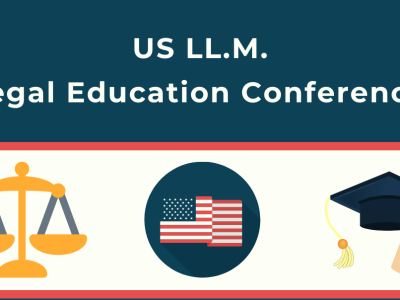A 2019 survey by recruiter Robert Half Legal found that 63 percent of 150 law firms across Canada planned to hire new staff. This translated into a 23 percent increase in demand for fresh talent compared with the year before.
This is also good news for graduates of LL.M. programs in Canada, which are among the best in the world. For foreign lawyers, there remain job opportunities are in the country, though they have been dampened by the coronavirus crisis.
In law firms, the most promising practice area is corporate law, followed by litigation, privacy, data security and information law, according to Robert Half Legal.
But LL.M. graduates also work in-house at companies in Canada, whose stable economy has supported hiring in recent years.
How to get a law job in Canada after an LL.M.
Specialized LL.M. courses can get graduates jobs in niche areas. The Allard School of Law at the University of British Columbia in Vancouver, for instance, runs an LL.M. in Taxation that provides deep knowledge of Canadian tax law and policy.
“We often see graduates hired into law firms specializing in taxation, or into corporations’ internal law operations or into major accounting firms,” says Alan Grove, graduate professional programs coordinator at the Allard School.
And there are plenty of research-based LL.M. courses in Canada, that lead on to a PhD or SJD in law as well. A career in academia often follows such a degree. “Other graduates use their LL.M. to work in the government at all levels, or advising or consulting in the non-profit sector,” says Grove.
Professor Andrea Bjorklund, associate dean of graduate studies at the Faculty of Law at McGill University in Montreal, adds that some students work on policy for state or provincial governments. “Some positions require Canadian nationality, but some do not. Working for business, or for a think-tank is also possible,” she says.
The labor market in Canada focuses on the fit of the candidate for the job. Unless a specialized skill or knowledge is required, such as in medicine or engineering, a degree does not guarantee a job.
“Mostly, employers look for the relevant skills and ability that applicants have, rather than the specific degree,” says Grove at the Allard School.
However, an LL.M. degree gives graduates a valuable set of transferrable skills, such as good time management, public speaking and teamwork ability, in addition to a strong theoretical grounding in all aspects of the law.
“Many of these transferrable skills end up being valuable in the workforce, and they are developed through the program,” says Grove.
Bjorklund, at McGill University, agrees. She notes that LL.M. cohorts in Canada are usually relatively small, so students can form strong bonds with their classmates, but can also be easily integrated into the larger JD population, so as to expand their network.
“Canadian law schools offer a vibrant, dynamic and interactive education,” she says. “Students are expected to perform well and to engage with their peers and with their professors in an active and intellectually constructive manner.”
Practicing law in Canada after an LL.M.
For those looking to practice law in Canada, some LL.M. programs aim to help foreign lawyers qualify to practice law in the country. Foreign lawyers must pass exams held by the National Committee on Accreditation (NCA), which is run by the Federation of Law Societies in Canada.
But not all courses meet the NCA requirements, so students may have to sit some or all of the exams.
Taking the LL.M. in Common Law at the Allard School, for example, shows that foreign lawyers have the necessary skills and knowledge to become lawyers in Canada, according to Grove. So, they do not need to take all of the NCA exams.
“The NCA recognizes our courses for meeting the Canadian common law subject areas, so that is a major draw for foreign applicants that want to work in Canada,” he says.
“The majority of our graduates from this program end up practicing law in Canada or returning home with specific knowledge of the Canadian legal system,” adds Grove.
However, the Canadian legal market is unique in that each individual province (there are 10) has its own licensing society. So qualifying to practice law in Alberta, western Canada, does not necessarily mean you can work in Ontario to the east, without securing extra accreditation.
“Lawyers only qualify for practicing law in that province or territory. But there are reciprocity agreements between the provinces for licensed lawyers to work cases in other provinces on a short-term basis,” Grove says.
Quebec is the only outlier to this agreement, as it has a civil and common law system, whereas all other provinces and territories are common law jurisdictions.
However, it does not matter where you do an LL.M. program if you are looking to practice in a different province. “It is possible to complete an LL.M. in Ontario and then be licensed to practice in British Columbia and vice-versa,” says Grove.










